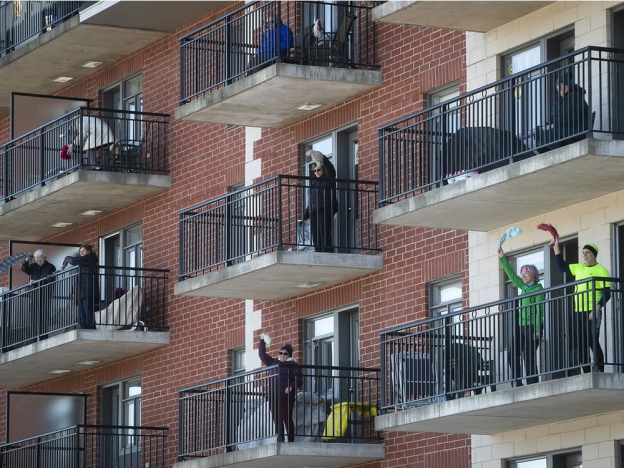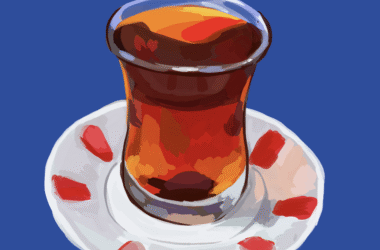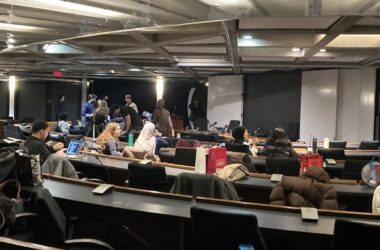Before COVID-19 forced the shutdown of public institutions and non-essential services, my life followed a stable routine. On most days, if I wasn’t already gone for an early shift at work, I would get to McGill at around 9:00 am for my morning classes, spend my free time at the library catching up on assignments, attend extracurriculars after class, and finally return home anywhere between 9:00 pm and midnight. The notion of a routine disappears from our minds by virtue of its chronic occurrence: The more we do something, the less we notice—or try to change the fact—that we do it all the time. A routine only grows more pernicious when it distracts us from the things we’re missing out on. Never in my regimen, during my four years at McGill, had I prioritized socialization. So consumed by a pace of life that emphasized work and success, my time at McGill, if anything, only enabled my solitude.
I live with my family. In the days following the university’s closure and the federal government’s physical distancing mandate , I sequestered myself in my bedroom with the door shut. A full day could go by, and I would not leave my room, save for a handful times. Consequently, I barely spoke to anyone, family or friends. My reflex was to keep social contact to an aggravating minimum; my brother might come in to talk only to be met with curt responses and indifferent expressions. None of my actions were warranted or proportionate to the conditions of our new circumstances. My reaction was not towards my family’s conduct, but rather to the simple prospect of their uninterrupted presence, which had become so unfamiliar so as to become completely alien.
Someone’s degree of extraversion should not be scrutinized extensively, but acceptance should not downplay its deleterious effects either. In the moments when I paid attention to my social isolation, I rationalized my behaviour by reassuring myself of its volitional quality; social isolation wasn’t something to be worried about because I had chosen to be alone. But the truth is that you can’t make a distinction between loneliness and solitude when it pervades most of your life. Or, more poignantly, the distinction becomes worthless.
Choosing to interact with my family became irrelevant as self-isolation became our new, collective routine. The smooth passing of each day, for a time, was predicated on our ability to get along with each other. Two weeks since the municipal shutdown, though, each day has instead become an opportunity to try new things together, or to simply listen and talk to each other. My guess is that this may be a reality for many families across the globe. Where, once, my neighbourhood streets were empty, I now see siblings playing basketball together, parents taking walks with their dogs, or groups of runners jogging down the street while respecting rules of social distancing. I’ve never seen my neighbourhood more alive.
It would be wrong to call COVID-19’s unveiling of our collective loneliness a silver lining; there are far better events that could teach us to be more sociable than the ensuing global pandemic that is occuring. Admittedly, we are dealing with far greater issues than our capacity to get along with each other. Nevertheless, every day, a growing number of videos pop up online showing our resourceful drive for connectedness at a time when we’re being forced to be more isolated than ever. In cities across Europe, residents are giving impromptu concerts on their balconies; on Instagram, celebrities are holding livestreams for millions of fans; friends are holding dinner parties via FaceTime; concerned Montrealers are volunteering to run errands for the elderly and immunocompromised.
Regardless of their manifestations before COVID-19, everyone’s routines have been disrupted. In their absence, acts of altruism and moments for reflection have emerged. Amidst our hopes for normalcy, we’re rediscovering the scope of our shared experiences, good or bad. Coming together—figuratively—has never been so important.







